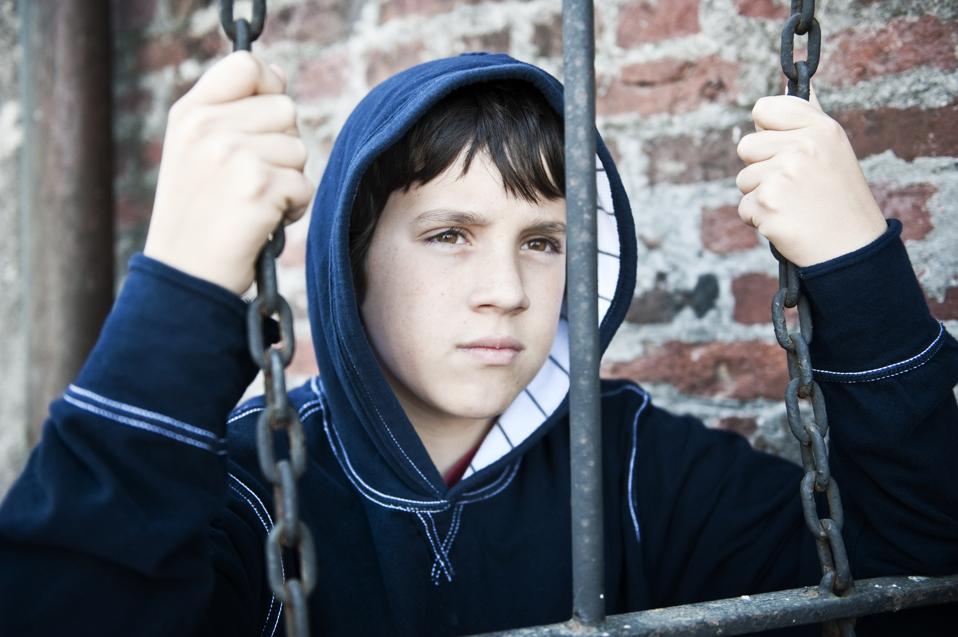School leaders are being urged to suspend fewer students to stop them falling behind.
The call comes as research in the U.K. found that even a single suspension from school can have an adverse impact on a students’ grades.
The number of young people suspended from school has risen dramatically over the last few years.
But students who are suspended from school are less likely to get good grades, according to research carried out by the Education Policy Institute (EPI), a U.K.-think tank.
And schools should aim to cut the number of suspensions to prevent poor outcomes for students, said Ben Gadsby, head of policy and research at Impetus, the philanthropic organization that commissioned the research.
“While suspensions are sometimes necessary, supporting pupils who are struggling to engage in mainstream education must continue to be a priority,” he said.
“We should aim for lower exclusion levels not simply for the sake of it, but because it would be a sign of a more effective education system for pupils and teachers alike,” he added.
Figures from England show a 35% increase in suspensions in the first semester of the 2022/23 academic year compared with the same semester the previous year, continuing an upward trend only interrupted by pandemic-induced school closures.
More than half of all suspensions in England were for persistent disruptive behavior, while almost half were for one day or less and 99% were for one week or less.
For some, the increase reflects a deterioration in student behavior post-Covid, while others point to the spread of a punitive approach to student behavior — characterized in ‘zero tolerance’ or ‘no excuses’ schools — where students are penalized for ‘offences’ such as not looking at the teacher or forgetting a pen.
EPI’s analysis found that students who were suspended just once during their secondary school career were less likely to get a ‘pass’ grade in English and math GCSE exams taken at 16.
A pass grade in both English and math is required for entry onto many further and higher education courses, as well as for many jobs and training courses.
Students who had multiple suspensions were an average of 12 months behind classmates who were not suspended.
The difference is not the result of the demographics of the young people involved — such as their household income — or whether they attend a school that is more likely to suspend students.
Instead, the researchers say both suspensions and poor grades are likely caused by the same factors, such as social and emotional skills or students already being behind academically.
“While it is not a surprise that suspended pupils get worse outcomes, this new research puts a number on the ‘suspension grades gap’ for the first time,” said Gadsby.
The findings demonstrate the need to focus on the underlying issues that drive suspensions and reduce children’s chances of doing well at school, he added.
Identifying children at risk could prompt early intervention to reduce the likelihood of suspension, according to Whitney Crenna-Jennings, associate director for mental health and well-being at the EPI and co-author of the report.
“Given the strong link between the number of suspensions from secondary school and poorer education outcomes, it is vital that schools work proactively to reduce the number of suspensions and are given the resources that they need to identify pupils with mental health and additional needs, to make early intervention possible,” she said.
Teachers should also be equipped with the skills to identify students who need additional support and to refer them to appropriate services, she added.
Students who are repeatedly suspended are much more likely to be identified with special educational needs or disabilities than those who were suspended just once, the research found.
Children from a Black Caribbean background or mixed white and Black Caribbean have the highest suspension rates of all ethnic groups in England, other than gypsy, Roma or Irish Traveller children.
Similar disparities exist in the U.S., where Black boys represent 8% of total K-12 enrolment but 15% of students who receive one or more suspensions.
Falling foul of school behavior policies is associated with other negative outcomes, including a greater likelihood of entering the criminal justice system in what has been described as the “school to prison pipeline”.
Around six in 10 prisoners in the U.K. reported having been suspended from school, with four in 10 saying they were permanently excluded, or expelled.

